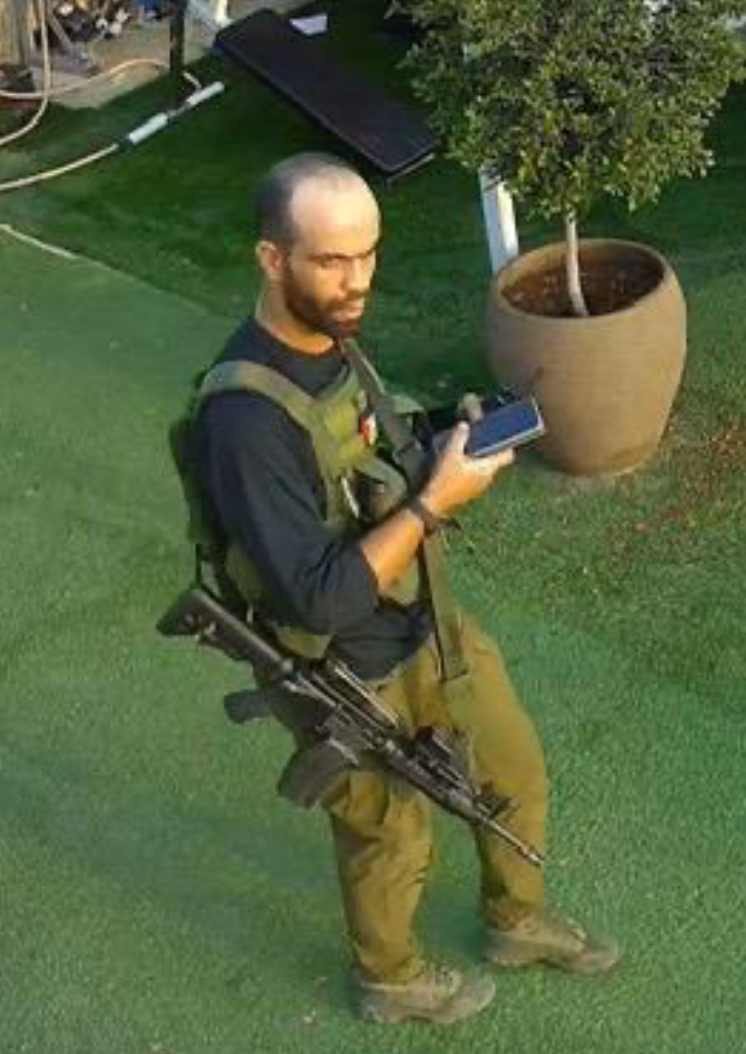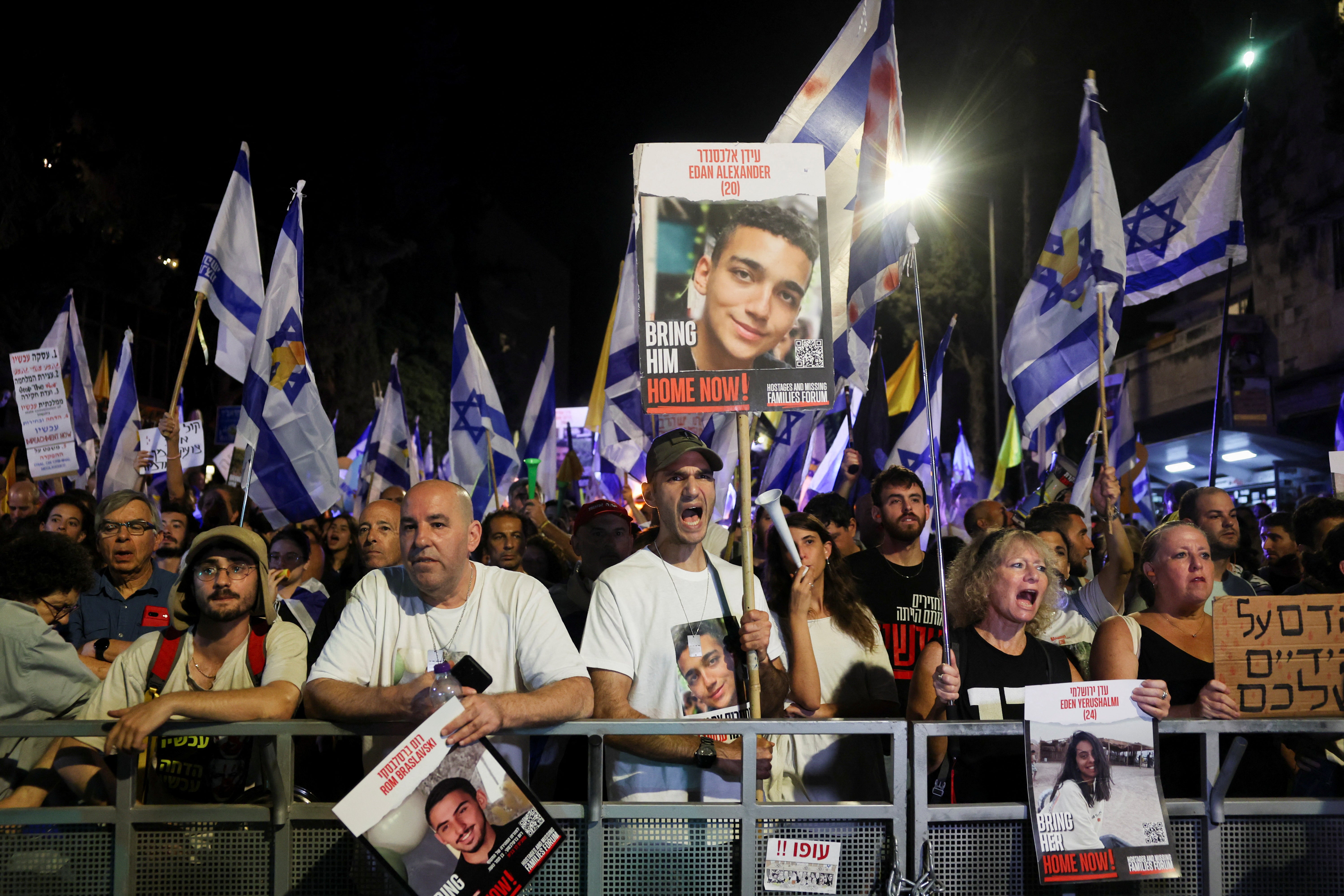Israel’s military says it has killed Hamas commander who murdered man in front of his children
Ahmed Fozi Nazer was filmed drinking a can of Coca-Cola from the fridge after killing Gil Taasa
Your support helps us to tell the story
From reproductive rights to climate change to Big Tech, The Independent is on the ground when the story is developing. Whether it's investigating the financials of Elon Musk's pro-Trump PAC or producing our latest documentary, 'The A Word', which shines a light on the American women fighting for reproductive rights, we know how important it is to parse out the facts from the messaging.
At such a critical moment in US history, we need reporters on the ground. Your donation allows us to keep sending journalists to speak to both sides of the story.
The Independent is trusted by Americans across the entire political spectrum. And unlike many other quality news outlets, we choose not to lock Americans out of our reporting and analysis with paywalls. We believe quality journalism should be available to everyone, paid for by those who can afford it.
Your support makes all the difference.Israel‘s military has said it has killed a Hamas commander who killed a father in front of his two children in the 7 October attack – and then was filmed drinking a can of Coca-Cola from the fridge.
As prime minister Benjamin Netanyahu faces angry street protests and demands to sign a truce in Gaza to retrieve the remaining hostages seized during Hamas’s bloody attack, the Israeli military claimed to have killed eight Hamas members in an airstrike.
The Israeli military identified the battalion commander as Ahmed Fozi Nazer Wadia, who it claimed flew into the Israeli settlement of Netiv HaAsara on a hang glider on 7 October before attacking civilians there.
In footage of the attack – which triggered Israel’s war in Gaza – screened privately for journalists and officials by Israel, resident Gil Taasa was reported to have thrown himself onto a grenade to protect his two sons as they all ran to a shelter in the attack.

Israel said on Tuesday that Wadia was among eight killed in an airstrike at a compound in Gaza City on Saturday where it claimed Hamas militants were operating. An engineer responsible for supplying explosives used to blow up the border fence on 7 October was also among those killed, Israel said.
The Israeli military said the compound that was hit was near the Al-Ahli hospital, but claimed the hospital itself was not hit. Gaza’s Hamas-run health ministry reported a strike on the hospital grounds on Saturday which it said had killed three people.
Israel launched its military campaign in Gaza in response to the attack inside Israel by Hamas, during which about 1,200 people were killed and another 250 taken hostage. Israel’s Gaza offensive has killed more than 40,000 Palestinians, according to health officials in the Hamas-run strip. Around 90 per cent of Gaza’s population has been displaced, often multiple times and Israeli bombardment and ground operations have caused vast destruction.
It comes as Mr Netanyahu faces his biggest political crisis since the war began 11 months ago, with angry street protests after the bodies of six hostages were discovered in a tunnel beneath the city of Rafah.
The discovery sparked calls for mass protests by families of the hostages who said their loved ones could have been returned alive in a ceasefire deal, with hundreds of thousands of Israelis taking to the streets on Monday to demand a deal to return the more than 100 people still held captive in Gaza.
In Gaza, the World Health Organisation said it was ahead of its target in vaccinating children against polio, with several pauses in the fighting agreed to allow for a mass inoculation drive following the discovery of Gaza’s first case of polio in 25 years.

The UN health organisation – which is relying on daily eight-hour pauses in fighting between Israel and Hamas in specific parts of Gaza – said it had vaccinated more than 161,000 children in central Gaza in the first two days of its campaign, more than the projected number of around 150,000.
“Up until now things are going well,” said Rik Peeperkorn, WHO representative for the Occupied Palestinian territories. “These humanitarian pauses, up until now they work. We still have 10 days to go.”
Meanwhile, Mr Netanyahu and Boris Johnson were among those to criticise the UK government, after foreign secretary David Lammy announced Britain was suspending around 30 of its 350 arms export licences to Israel, citing a “clear risk” they could be used to breach international humanitarian law.
Additional reporting by agencies

Join our commenting forum
Join thought-provoking conversations, follow other Independent readers and see their replies
Comments